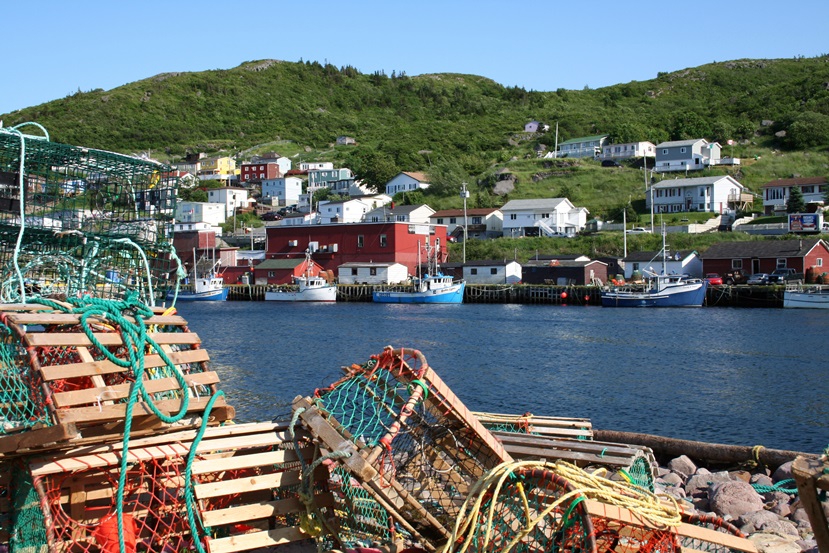As the severity of wildfires increases, shorelines flood, and extreme weather becomes more common, the effects of climate change unfold differently in Canadian cities and communities from coast to coast. That’s why the Federation of Canadian Municipalities (FCM) has provided grants to 12 organizations that will help participating communities of all sizes — from all regions of Canada — adapt to effects of climate change.
The funding, known as climate adaptation partner grants, will enable the partner organizations to provide training and guidance on how to adapt to climate change to more than 70 municipalities across Canada. The grants, totaling $2.4 million, are delivered through FCM’s Municipalities for Climate Innovation Program and funded by the Government of Canada.
The partner organizations will use the funding to develop peer learning networks, which are groups of five municipalities or more in a region or province that face similar geographic or climate conditions and have common goals. The objective is to help communities collaborate and share knowledge to improve their ability to adapt to the impacts of climate change.
The partner organizations will deliver training, provide expert guidance and facilitate learning activities so communities can learn from each other’s common experiences. Participating municipalities will work on projects, such as assessing their vulnerability to climate change impacts, creating plans to adapt to climate change, and improving municipal systems and facilities to meet specific local needs. By working together, they will develop innovative solutions to the climate change impacts they face.
Below is the list of partner organizations that have received funding, as well as details about their projects, and the 72 communities that will be participating.
All One Sky
Preparing a coordinated adaptation strategy for the Alberta Capital Region and its municipalities.
- City of Spruce Grove, AB
- City of Leduc, AB
- Town of Devon, AB
- City of St. Albert, AB
- City of Edmonton, AB
- Strathcona County, AB
- Town of Stony Plain, AB
- City of Wetaskiwin, AB
Clean Foundation
Identifying and overcoming the barriers to addressing impacts of rising sea levels and extreme weather.
- Municipality of Digby, NS
- Anapolis County, NS
- City of Halifax, NS
- County of Kings, NS
- County of Cumberland, NS
- Town of Lockeport, NS
- Municipality of the District of Yarmouth, NS
Conservation Corps Newfoundland and Labrador
Developing vulnerability assessments and/or response plans, as well as tools and case studies for future sharing.
- Town of Portugal Cove-St. Philip’s, NL
- City of Mount Pearl, NL
- Town of Port Blandford, NL
- Town of Long Bay-Middle Cove-Outer Cove, NL
- Town of Grand Falls-Windsor, NL
- Miawpukek First Nation Reserve, NL
Fraser Basin Council
Conducting gap analyses and vulnerability assessments for the specific climate needs of each municipality.
- District of Tumbler Ridge, BC
- District of Chetwynd, BC
- City of Fort St. John, BC
- City of Dawson Creek, BC
- Northern Rockies Regional Municipality, BC
- Town of Pouce Coupe, BC
Grand River Conservation Authority
Improving wastewater management facilities to better face climate change risks such as flooding, drought and extreme heat.
- City of Brantford, ON
- Regional Municipality of Waterloo, ON
- Haldimand County, ON
- County of Brant, ON
- Township of Centre Wellington, ON
ICLEI Canada
Developing local climate impact reports, vulnerability and risk assessments, and adaptation plans for each participating community.
- District of Ucluelet, BC
- Town of Qualicum Beach, BC
- City of Prince George, BC
- Town of Caledon, ON
- City of Peterborough, ON
- City of Windsor, ON
- Town of Portugal Cove-St. Philip’s, NL
- Town of Conception Bay South, NL
INRS
Developing stormwater management and flood intervention plans that respond to both regional and specific municipal concerns.
- Municipality of Plaisance, QC
- Municipality of St-André-Avellin, QC
- Town of Papineauville, QC
- Town of Duhamel, QC
- Town of Lac Simon, QC
- Municipality of Ripon, QC
MIRARCO
Conducting vulnerability and risk assessments and supporting the implementation of climate adaptation plans.
- City of Greater Sudbury, ON
- City of Sault Ste. Marie, ON
- City of Timmins, ON
- City of North Bay, ON
- City of Thunder Bay, ON
Ontario Parks Association
Analyzing and reporting on green infrastructure (natural assets) that each municipality can implement to manage risks from flooding and extreme heat.
- City of Toronto, ON
- City of Barrie, ON
- City of Waterloo, ON
- City of Brampton, ON
- City of Guelph, ON
- City of London, ON
Ouranos
Assessing participating municipalities’ vulnerability to coastal flooding and erosion using a cost analysis and decision-making tool from Ouranos.
- Municipality of Notre-Dame-du-Portage, QC
- City of Rivière-du-Loup, QC
- Municipality of Sainte-Luce, QC
- Town of Métis-sur-Mer, QC
- Municipality of Sainte-Flavie, QC
- Municipality of Grand-Métis, QC
QUEST – Quality Urban Energy Systems of Tomorrow
Preparing energy infrastructure vulnerability assessments and developing adaptation strategies tailored to each community’s needs.
- Town of Cochrane, AB
- Town of Devon, AB
- Town of Okotoks, AB
- City of Saint John, NB
- Regional Municipality of Tracadie, NB
- City of Campbellton, NB
Smart Prosperity Institute
Assessing and comparing the operating costs of natural assets and grey infrastructure to manage risks from flooding and extreme heat.
- City of Courtney, BC
- City of Oshawa, ON
- Southeast Regional Service Commission, NB
- District of Sparwood, BC
- Western Valley Regional Service Commission, NB
Photo of fishing village in Newfoundland via Adobe Stock.

